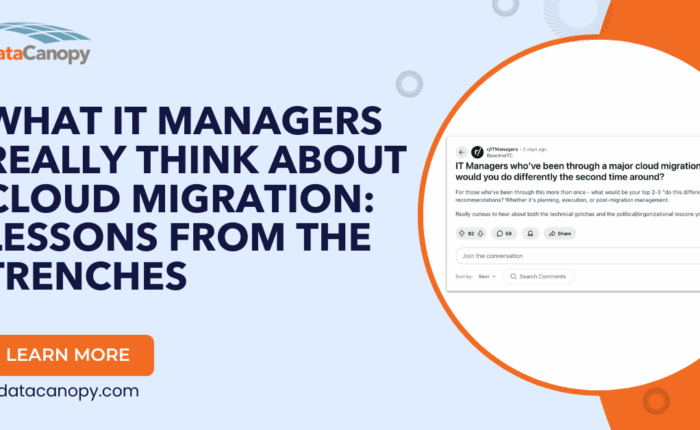 With the vast amount of data and information that companies need to in order to operate; the cloud seems like an appealing option. However, industries that handle especially sensitive material like financial service institutions have to weigh the pros and cons of the cloud for a highly-regulated environment. Not all clouds are built the same with public to private and even hybrid options. Companies need to find which solution will work best for them. We asked Do Kim, our VP of Sales, some questions to help navigate picking the right cloud solution for financial services organizations.
With the vast amount of data and information that companies need to in order to operate; the cloud seems like an appealing option. However, industries that handle especially sensitive material like financial service institutions have to weigh the pros and cons of the cloud for a highly-regulated environment. Not all clouds are built the same with public to private and even hybrid options. Companies need to find which solution will work best for them. We asked Do Kim, our VP of Sales, some questions to help navigate picking the right cloud solution for financial services organizations.
1. What are some of the applications that a financial services organization might want to migrate to the cloud?
The applications that work best in the cloud for most organizations are non-sensitive applications, such as those for email, CRMs, test or development environment, disaster recovery, and collaboration.
2. Should financial services firms use private or public cloud?
Thankfully, it’s not an either/or choice. Financial services organizations will probably find it’s most beneficial to do a hybrid or multi-cloud deployment. Public cloud should be used for non-sensitive data. Private cloud is best for sensitive data, such as client information, financial records, etc. However, private cloud may not offer the same scaling capabilities that public cloud can, and therefore can be more expensive. We would recommend a hybrid cloud strategy, also potentially incorporating colocation when accommodating a proprietary application or servers that have not reached end of life.
3. What are some of the challenges that financial services firms face when migrating services to the cloud?
Among our clients security and data privacy are the number one concern for moving to the cloud. Meeting compliance standards is a close second. These are followed by fear of losing control over data. And finally, is management feeling that an in-house solution would be more cost-effective.
4. Where should financial services host more sensitive data?
Preferably on their own servers, in a compliant data center or colocation facility. One of our financial services clients colocates their production and disaster recovery environments in our data centers in Ashburn and Austin respectively. This gives them full control over their data. They set all the security standards and they have peace of mind knowing exactly where their data lives. They are able to leverage our certifications to assist with their compliance requirements.
5. What management strategies should financial services firms consider for their infrastructure?
As I said before, we believe a hybrid cloud strategy is the most beneficial. Public cloud’s massive scale should be utilized for non-sensitive, unregulated data. However, highly sensitive data requiring compliance should be on company-owned servers, which will give firms all the control they need.
There are many options when it comes to the cloud, from public to private to hybrid, and with these options come different layers of security. When choosing a cloud solution, financial service organizations must weigh the pros and cons of every solution and decide which information should go where. If your company needs help creating the perfect cloud solution, give us a call. We’d be happy to help.



